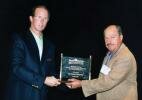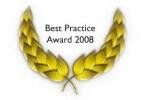Professional sports bettors don't feel like it's a gamble spin palace online casino
Paul Hogan is a professional gambler who uses mathematical models to win at sports betting. The Sportsbook manager at Mirage Vegas is renowned for his expertise in bankroll management and his recent ESPN Behind The Bets podcast was fascinating listening.
I have summarised the highlights below:
The general rule of sports betting is the more you can bet, the more difficult it is to beat.
One of the biggest problems you have in assessing sports is just having the data. But if I have enough data and it's a small market then there's really no way I can lose.
Anytime you try to make an adjustment to a number that is based on opinion, you're playing with fire potentially. But if you can come up with a way to quantify any adjustment you're going to make in my case that always works better than doing it subjectively.
I have a database of 250,000 MLB BASEBALL matches and it gets updated almost every hour. My group has between 6000 and 8000 bets per year and our hold (profit margin) is between 16.5% and 20%.
Know your strengths and also your weaknesses. We have completely stopped betting on PRESEASON matches because the returns have been (relatively) poor and part of the reason is suspicious matches.
If I have a team as favourite based on my model, but the market doesn't agree then 90% of the time the odds will move towards my bet. When it goes the opposite direction in a big way (say 10% in terms of market percentage) and there is no injury or illness then that is a suspicious match.
Yes it's a bet but the short-term doesn't matter. All that matters is how am I doing at the end of the year. Most professional sports bettors don't feel like it's a gamble. You put in the work and it is a lot more work than a regular job, but if you do the work the results will speak for themselves.
Anything you do will become obsolete in a few years. There are a couple of metrics you can use to see whether or not the market is catching up with you. One of those metrics is how much am I beating the closer? So if on average I am beating the closing price by 3% and then a year later I am only beating it by 1.5% that tells me the market has gotten 1.5% smarter. The other thing is your actual betting edge decreases over time. So if you went back to 2006 using the model we have now then you'd be making 6% on turnover. But right now we make 1.5% to 2%.
Opportunities are always drying up, but then new markets are emerging too. It's a trade-off so you always need to be working on something new. That's why I am working so hard on in-game baseball right now. Because if I had to bet on whether I'll be making money with this tennis model in 5 years' time I'd say it is less than 50/50.
Sometimes you have to swallow your pride. There is a chance I will do a lot of work on a model but then say it's not good enough to bet. I did it for college basketball last year. The old approach I was using wasn't good enough so I tried a new approach. We then tested it but the group rejected it and said it is not good enough to bet. So I may put in 200 hours work and we have to throw it out.
Follow Paul Hogan's 2013 Million Picks Program by joining Sports Betting Solution



![]()
